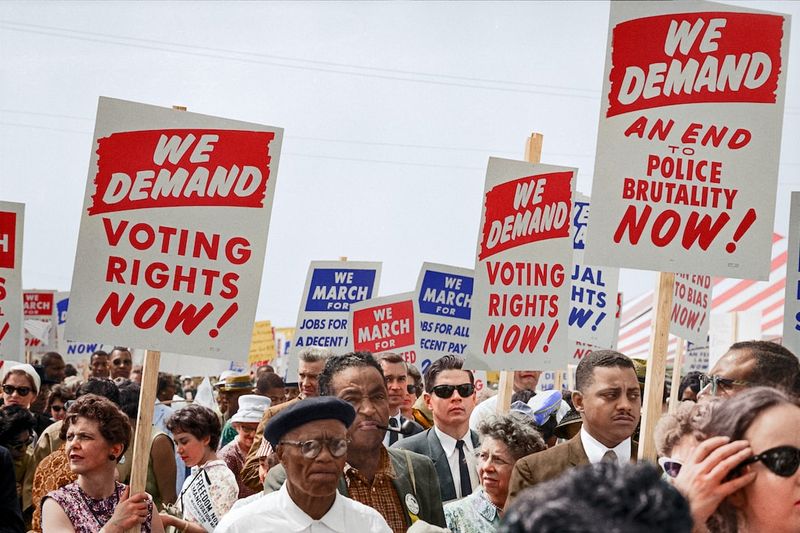National: How many voters does it take to make a majority? Why Ohio’s Issue 1 is controversial
The Background
On Tuesday, voters in Ohio will participate in a special election to decide the fate of Issue 1, a ballot measure that seeks to raise the threshold for voter approval of amendments to Ohio’s constitution. Currently, constitutional amendments require a simple majority to pass, but if Issue 1 is approved, it would raise that requirement to 60%.
Republican Secretary of State Frank LaRose, who proposed the measure, argues that the change is necessary to prevent wealthy out-of-state special interests from influencing Ohio’s founding document. LaRose recognizes the seriousness of amending the state constitution and believes that a higher threshold for approval is appropriate.
The Controversy
Opponents of Issue 1 have raised concerns about the timing and intent of the measure. Some suspect that its introduction is an attempt to prevent a constitutional amendment on reproductive rights, slated for the November ballot, from passing. Critics argue that the proposed 60% approval requirement would make it significantly more difficult for grassroots groups to get amendments on the ballot, effectively stifling their voices and limiting citizens’ ability to shape the state constitution.
This controversy stems from a series of events that began when Ohio enacted a six-week abortion ban last summer. Following this ban, news emerged of a 10-year-old rape victim who was denied treatment in Ohio and had to travel to Indiana for an abortion. In response, groups mobilized to draft a constitutional amendment guaranteeing abortion access, leading to the current push for a higher approval threshold.
Democratic Protests and Lawsuit
Issue 1 has drawn significant opposition from various groups, including union groups, abortion rights activists, gun law reform advocates, and former Ohio governors and attorneys general from both parties. Demonstrators flooded the Ohio Statehouse in May in protest of the Republican supermajority’s decision to push forward with the measure.
Opponents argue that the increased workload and requirements for gathering signatures from all 88 counties in Ohio, instead of the current 44, would make it nearly impossible for grassroots groups to put amendments on the ballot. They believe that this move undermines the principle of “one person, one vote” and restricts the democratic process.
The opponents of Issue 1 filed a lawsuit, claiming that the resolution violates a law that bans most August special elections. However, the Ohio Supreme Court, in a party-line decision, ruled that the ban did not apply to state legislators putting a constitutional amendment before voters, further adding to the controversy surrounding the measure.
National Attention and Ad Campaigns
The controversial referendum in Ohio has garnered attention from across the country. The coalition supporting Issue 1 primarily consists of anti-abortion organizations, gun rights groups, and major business groups concerned about a potential minimum wage amendment. On the other hand, the opposition includes union groups, abortion rights activists, gun law reform advocates, and former state leaders from both parties.
Despite being held in the middle of the August vacation season when voter turnout is typically low, early reports indicate that Ohioans are showing up to cast their votes. Long lines have been observed in some counties, highlighting the significance of the issue to voters. Furthermore, both sides of the issue have engaged in an advertising blitz, with a total spending of around $22 million, the majority of which has come from outside of Ohio.
Editorial: The Power of Numbers and Understanding Democracy
The Threshold for Majority
Issue 1 in Ohio brings to light the importance of understanding and debating the threshold required for a majority in a democratic society. The current debate revolves around whether a simple majority or a higher threshold, such as 60%, is necessary for passing constitutional amendments.
The argument in favor of a higher threshold centers around the idea that amending a constitution should be a serious and considered endeavor. Proponents believe that a higher threshold prevents hasty changes and safeguards against the influence of powerful external interests. However, critics argue that by setting a higher approval requirement, the voices of minority groups and grassroots organizations risk being marginalized, undermining the principles of inclusivity and democracy.
The Role of Timing and Intent
Another aspect of the controversy surrounding Issue 1 relates to its timing and perceived intent. Critics argue that the introduction of the measure is a strategic move by certain political factions to thwart an upcoming ballot measure on reproductive rights. If their suspicions are true, it raises important questions about the use of political maneuvers to limit the democratic process and the ability of citizens to participate fully.
Protecting the Democratic Process
Regardless of the outcome of the Ohio special election, it is crucial to reflect on the underlying principles that define our democratic processes. We must always strive for inclusivity, fairness, and transparency. When debating changes to the threshold for approval or the timing of elections, we should carefully consider the possible consequences and their impact on the fundamental values of democracy.
Ensuring that the voices of all citizens are heard and that the democratic process is protected should be our top priority. It is important to support measures that encourage widespread engagement, enable citizens to participate meaningfully, and safeguard against undue influence from powerful interests.
Advice: Citizen Engagement and Activism
Get Involved
Issues like the one being debated in Ohio highlight the need for citizens to be actively engaged in the democratic process. Regardless of where you stand on the topic, it is essential to stay informed and participate in discussions surrounding the threshold for majority, the influence of money in politics, and the protection of democratic values.
Support Grassroots Efforts
Amidst the controversy surrounding Issue 1 and the potential impact on grassroots organizations, consider supporting local initiatives and groups that aim to give voice to marginalized communities. By supporting these efforts, you contribute to a more inclusive and representative democracy.
Encourage Civil Discourse and Understanding
In a politically charged environment, it is imperative to promote civil discourse and understanding. Engage with individuals who hold different perspectives, listen to their concerns, and strive to find common ground. By fostering respectful dialogue, we can work towards a more cohesive society and collective decision-making.
Hold Elected Officials Accountable
Elected officials have a responsibility to uphold democratic principles and ensure that the voices of their constituents are heard. Hold them accountable by staying informed about their actions and positions on critical issues. Consider attending town halls, writing letters, or making phone calls to express your views and expectations.
In conclusion, the controversy surrounding Ohio’s Issue 1 serves as a reminder of the importance of citizen engagement, the protection of democratic values, and the need for thoughtful discourse and decision-making. By actively participating in the democratic process, supporting grassroots initiatives, fostering understanding, and holding elected officials accountable, we can contribute to a more vibrant and inclusive democracy.

<< photo by Unseen Histories >>
The image is for illustrative purposes only and does not depict the actual situation.
You might want to read !
- Colombia Secures Hard-Fought 1-0 Victory Against Jamaica in Women’s World Cup 2023
- Colombia Edges Jamaica in Tight Contest to Secure a Spot in the Next Round
- The Power of Preparation: Analyzing the FIBA World Cup USAB Exhibition Schedule
- Who Will Prevail? Netherlands vs. South Africa: A Clash of Titans in the Women’s World Cup
- The Resurgence of Spain and the Rise of Japan: Women’s World Cup Daily Update
- The Messi Factor: Inter Miami vs. Orlando City – Odds, Predictions, and Will Messi Find the Net?
- Orioles Remove Kevin Brown from Broadcasts over Controversial Comment on Player Performance
- Wayne Brady: Embracing Pansexuality in the Spotlight
- Wayne Brady Comes Out as Pansexual: Challenging Stereotypes and Celebrating Authenticity




